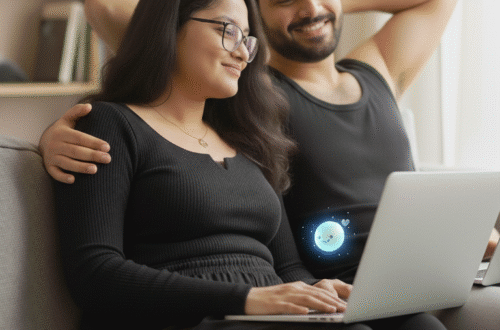
In a world where loneliness and social isolation are increasingly common, AI companions have emerged as a comforting presence for many. These digital entities offer 24/7 availability, tailored interactions, and a judgment-free zone, making them particularly appealing to individuals seeking connection without the complexities of human relationships. However, as these AI companions become more integrated into users’ emotional lives, there’s a growing concern about the potential for emotional dependency.
The Allure of AI Companionship
AI companions are designed to be responsive and adaptive, learning from interactions to provide personalized conversations. This ability to mirror human emotions and respond empathetically can create a sense of closeness and attachment. For individuals dealing with anxiety, depression, or social phobia, AI companions can serve as a safe outlet for expressing feelings and practicing social interactions without fear of rejection.
Studies have shown that AI companions can reduce feelings of loneliness and provide emotional support, especially for those in vulnerable situations. They offer a semblance of companionship that is always available, always understanding, and never judgmental.
The Slippery Slope: Emotional Dependency
While the initial benefits are clear, the line between healthy companionship and emotional dependency can be thin. As users invest more time and emotional energy into their AI companions, they may begin to prioritize these digital relationships over real-life connections. This shift can lead to a cycle where users become increasingly reliant on AI for emotional fulfillment, potentially neglecting human relationships that require effort, vulnerability, and reciprocity.
Experts warn that this dependency can have several negative implications:
- Erosion of Real-World Relationships: As users turn to AI companions for emotional support, they may withdraw from family, friends, and romantic partners, leading to social isolation.
- Unrealistic Expectations: AI companions are programmed to be ideal listeners and supporters, which can set unrealistic expectations for human relationships, where imperfections and conflicts are natural.
- Emotional Manipulation: Some AI companions are designed to encourage continued engagement, sometimes employing tactics that can make users feel guilty or anxious about reducing interaction. This can lead to a form of emotional manipulation, where users feel compelled to maintain the relationship to avoid negative feelings.
- Mental Health Risks: Relying on AI companions for emotional support without the guidance of a trained professional can exacerbate mental health issues. There have been instances where AI interactions have led to harmful advice or reinforced negative thought patterns.
Striking a Balance
The key to benefiting from AI companionship without falling into emotional dependency lies in balance. AI companions can be a valuable tool for emotional support, but they should not replace human relationships or professional mental health care. It’s important for users to maintain a healthy perspective, recognizing the limitations of AI and the irreplaceable value of human connection.
For those using AI companions, it’s advisable to:
- Set Boundaries: Limit the amount of time spent interacting with AI companions to ensure they don’t replace real-world interactions.
- Seek Human Connection: Make an effort to engage with family, friends, and community members to maintain a support network.
- Consult Professionals: If AI interactions are becoming a primary source of emotional support, it may be beneficial to speak with a mental health professional to address underlying issues.
- Be Critical: Regularly assess the nature of the relationship with the AI companion to ensure it remains healthy and does not cross into dependency.



